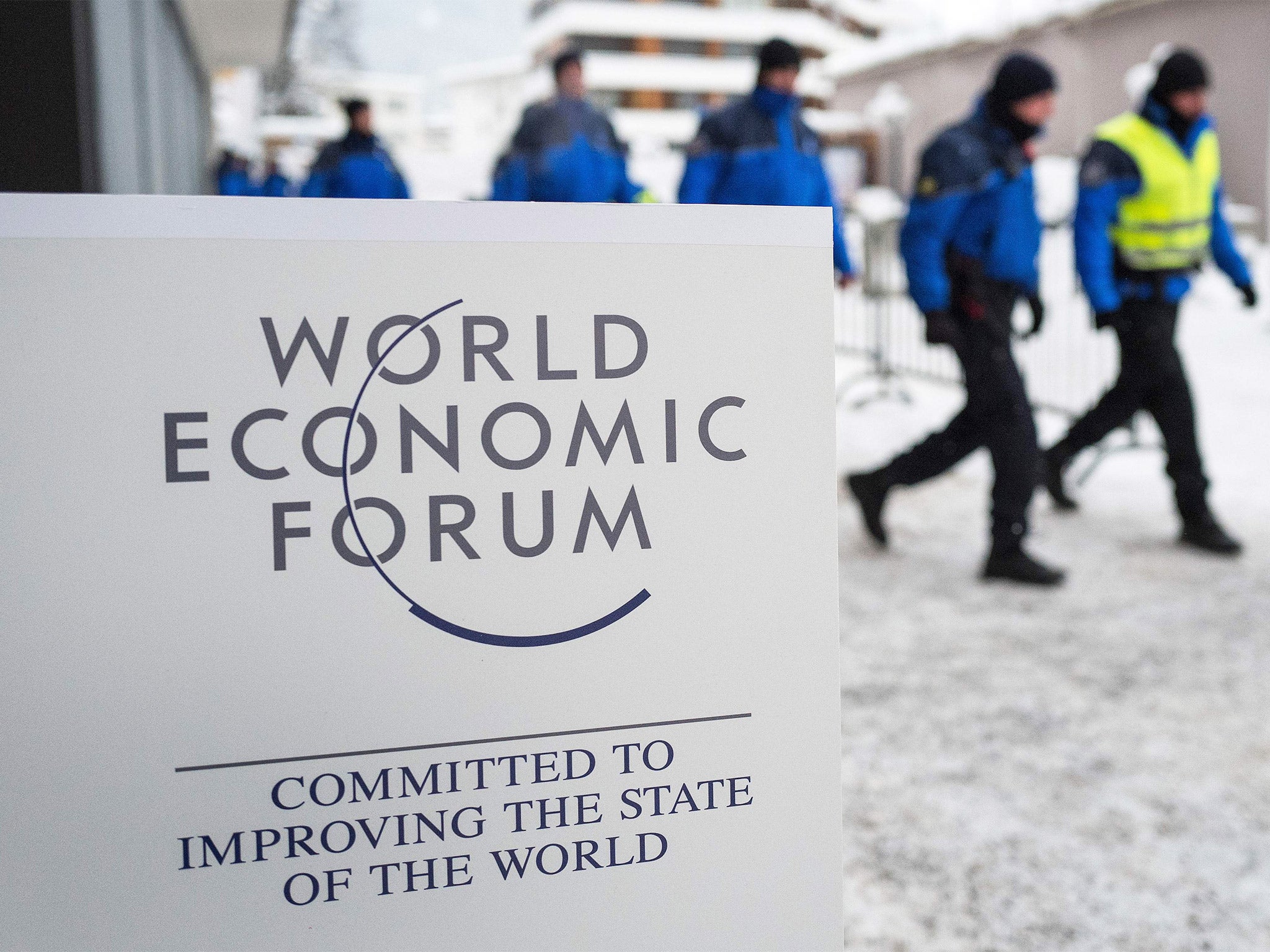World Economic Forum 2016: Investors face bear markets across the world as global leaders gather in Davos
About £52bn was wiped off the value of FTSE 100 firms as the index fell more than 20 per cent below its peak in April last year

Investors around the world found themselves in the grip of a vicious bear market driven by alarm about the price of oil and trepidation about a hard landing for China. The sell-off came as global leaders and top executives arrived at Davos in Switzerland for the first full day of the World Economic Forum.
About £52bn was wiped off the value of FTSE 100 firms as the index fell more than 20 per cent below its peak in April last year – meeting the technical definition of a bear market. The blue-chip index closed down 3.5 per cent at 5,673 – its worst daily performance since China’s “Black Monday”-inspired funk last August.
Overnight, Japanese shares had also fallen into a bear market after the Nikkei closed down 3.7 per cent, 21.3 per cent lower than last June. In New York, the Dow surrendered as much as 3 per cent in early trading, although it regained some ground by the close. And bourses across Europe all suffered deep losses as fears of trouble in the China (which has been the driver of global growth since the financial crisis) and worries about the impact of rapidly sliding oil prices set off a wave of selling.
The price of a barrel of Brent crude hit new 13 year lows, touching $27.77 before settling down 3 per cent at $27.88.
At Davos, Sir Martin Sorrell, the chief executive of the global advertising group WPP, reflected the pessimistic mood, saying: “The new normal is a low-growth world.”
Axel Weber, the chairman of the Swiss banking giant UBS, said the world had “moved to a lower growth environment” and there was unlikely to be a bounce-back to previous rates of expansion. But others in the exclusive Swiss ski resort suggested that the market was overreacting, particularly to the recent economic data coming out of China.
“It feels like a correction to me,” said Stephen Schwarzman, the chief executive of private equity group Blackstone. “If I thought China was in a freefall, I would be really concerned – I actually don’t.” Tidjane Thiam, the new boss of Credit Suisse, suggested the beleaguered eurozone economy was turning a corner.
An unusual source of relative optimism was economist Nouriel Roubini, known as “Dr Doom”, who said the world did not face another financial meltdown. “It is not going to be like 2008-9. There is not the excessive leverage in the financial system that there was last time,” he argued.
The Beijing statistical agency confirmed on Tuesday that China grew at its slowest pace in a quarter of a century in 2015, and the International Monetary Fund lowered its 2016 growth forecast to 3.4 per cent on the back of a weaker outlook for emerging markets.
Investors’ flight to safety was also evident in the bond markets, with sovereign yields, which move inversely to price, falling. Emerging market currencies were hit hard, with Russia’s rouble slumping to a record low of 80.295 against the dollar.
Business news: In pictures
Show all 13“The main driver of the falls continues to be oil,” said Chris Beauchamp, of the spread betting firm IG.
Laura Lambie, of Investec, said: “Investors have decided the world is a riskier place.”
World stocks and shares, as measured by the MSCI world equity index, are down almost 10 per cent in January so far, the biggest monthly drop recorded since 2009.
Subscribe to Independent Premium to bookmark this article
Want to bookmark your favourite articles and stories to read or reference later? Start your Independent Premium subscription today.

Join our commenting forum
Join thought-provoking conversations, follow other Independent readers and see their replies